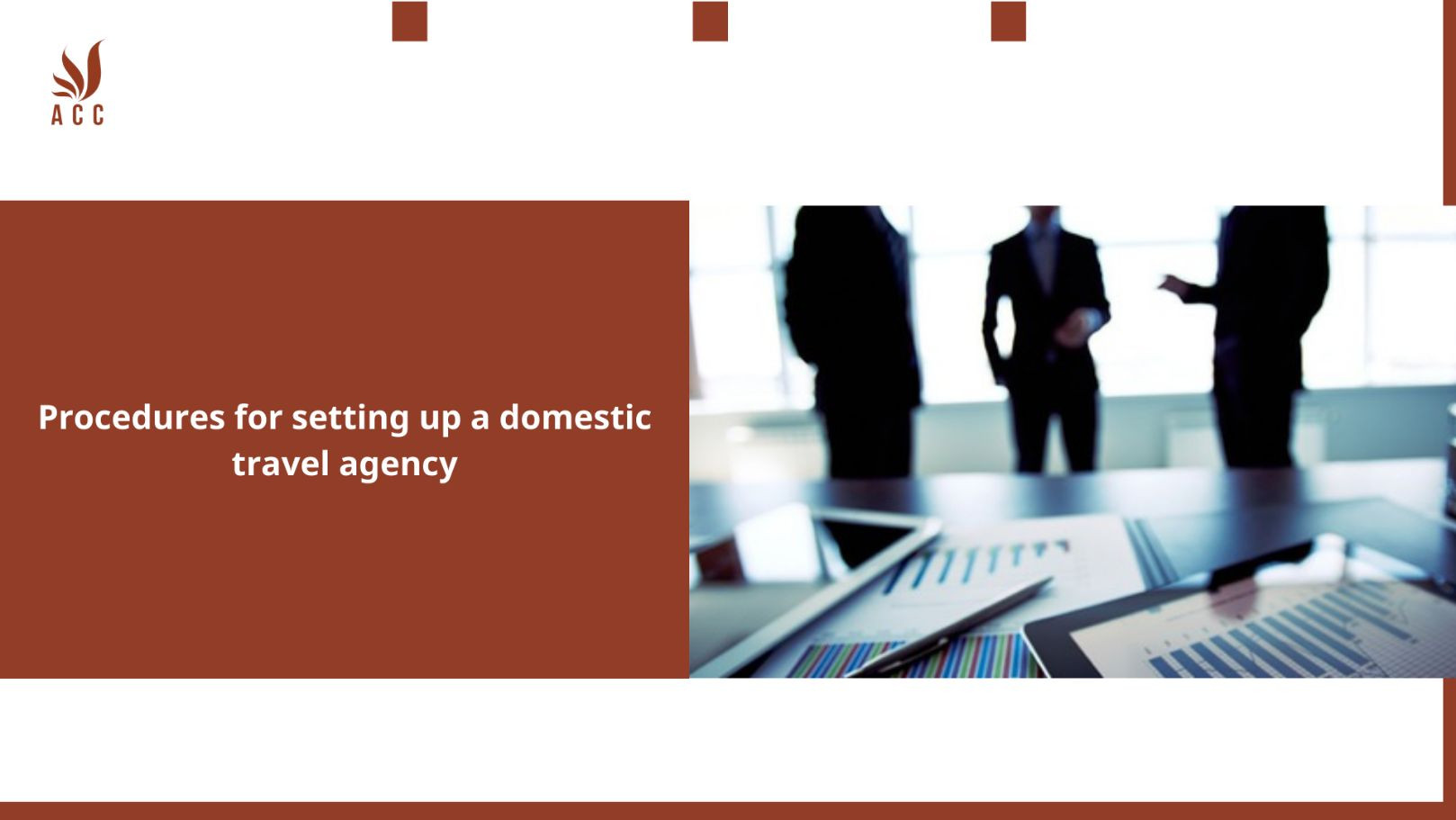Setting up a domestic travel agency involves several procedures. Here are the key steps to consider:
1. Market Research:
Conduct thorough market research to identify the demand for domestic travel services in your target location. Analyze the competition, target audience, and potential profitability of the business.

Procedures for setting up a domestic travel agency
2. Business Plan:
Develop a comprehensive business plan that outlines your company's mission, objectives, target market, marketing strategies, services offered, pricing, financial projections, and growth plans. This plan will serve as a roadmap for your business operations.
3. Legal Requirements and Registration:
Research the legal requirements for establishing a travel agency in your jurisdiction. This may include obtaining the necessary licenses, permits, and registrations from the relevant government authorities. Consult with legal professionals to ensure compliance with the laws and regulations specific to the travel industry.
4. Company Structure:
Determine the legal structure of your travel agency, such as sole proprietorship, partnership, limited liability company (LLC), or corporation. Consult with legal and financial professionals to determine the most suitable structure for your business.
5. Business Name and Registration:
Choose a unique and memorable name for your travel agency. Check the availability of the chosen name and register it with the appropriate authorities. This may involve filing a registration application and paying the required fees.
6. Business Insurance:
Obtain appropriate insurance coverage for your travel agency. This may include general liability insurance, professional indemnity insurance, and travel agency bonds, depending on the legal requirements and the nature of your services. Consult with insurance providers to determine the necessary coverage for your business.
7. Q&A
What are the primary steps involved in setting up a domestic travel agency?
The procedure for establishing a domestic travel agency typically involves these steps:
- Business Plan: Begin by creating a detailed business plan outlining your agency's services, target market, pricing strategy, and marketing plan.
- Legal Structure: Choose a suitable legal structure for your agency, such as a sole proprietorship, partnership, limited liability company (LLC), or corporation.
- Business Name: Select a unique and appealing name for your travel agency and check its availability for registration.
- Register Your Business: Register your travel agency with the appropriate government authorities, which may include state or local business registration and obtaining any necessary licenses.
- Obtain Travel Industry Certifications: Many travel agencies join industry associations and obtain certifications like IATA (International Air Transport Association) or ASTA (American Society of Travel Advisors) accreditation.
- Secure Travel Supplier Agreements: Establish partnerships with airlines, hotels, cruise lines, and other travel suppliers to access their services and pricing.
- Create a Website and Marketing Materials: Develop a professional website and promotional materials to showcase your services and attract customers.
- Set Up Financial Accounts: Open business bank accounts to separate business finances from personal finances.
- Comply with Regulations: Ensure compliance with all relevant travel and tourism regulations, including any bonding or insurance requirements.
- Hire and Train Staff: If needed, hire and train employees or independent travel agents to assist in sales and customer service.
- Develop Booking and Reservation Systems: Implement booking and reservation systems to manage travel arrangements efficiently.
What licenses and certifications are typically required for a domestic travel agency?
The specific licenses and certifications required can vary by location, but they may include:
Business licenses and permits from local and state authorities.
Seller of Travel licenses in some states.
Industry certifications, such as IATA, if your agency plans to issue airline tickets.
How can a domestic travel agency establish relationships with travel suppliers?
Building relationships with travel suppliers often involves reaching out to airlines, hotels, cruise lines, and other suppliers to negotiate contracts and agreements. Attend industry events, join travel associations, and network with suppliers to establish these partnerships.
What marketing strategies are effective for a domestic travel agency?
Effective marketing strategies for a travel agency include:
- Building an informative and user-friendly website.
- Developing a strong online presence through social media and digital advertising.
- Offering attractive vacation packages and deals.
- Collaborating with local businesses and tourism boards.
- Providing exceptional customer service to encourage word-of-mouth referrals.
Starting a domestic travel agency requires careful planning, compliance with industry regulations, and effective marketing. It's essential to research your local and state requirements and seek professional guidance as needed to ensure a successful launch.
Nội dung bài viết:






Bình luận